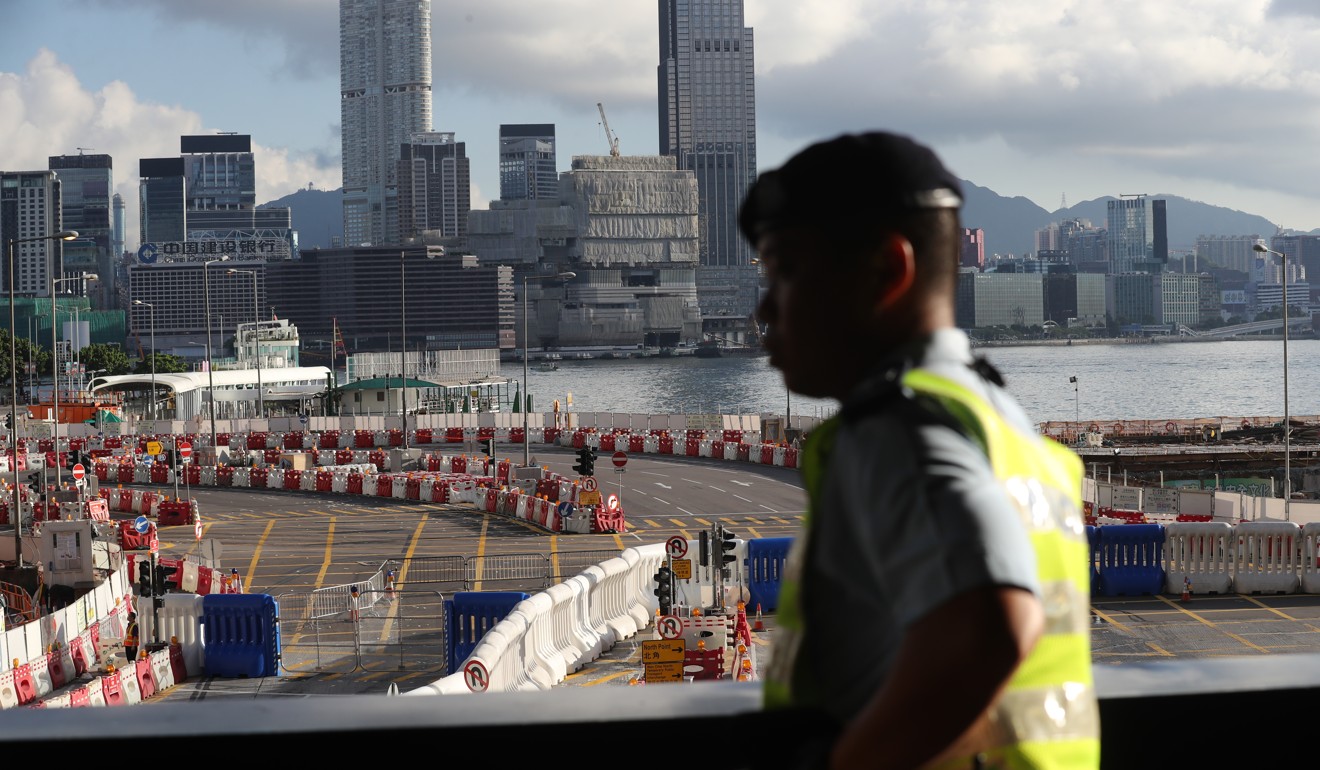
Hong Kong plans to set up anti-terror task force in response to global threat
New team headed by Security Bureau to share intelligence and planning across spectrum of law enforcement and disciplined services
Hong Kong is planning to set up its first anti-terrorism task force, drawn from the city’s police and other law enforcement agencies, to centralise intelligence gathering and sharing, sources have told the Post.
Hundreds of officers from the disciplined forces, including immigration, customs and correctional services, will work together to boost Hong Kong’s preparedness and capability in light of global terror threats and attacks.
A senior government source revealed that the Security Bureau would be taking the lead in creating new posts at law enforcement agencies, while the police force was looking into establishing a “counter-terrorism bureau”.
Security experts welcomed the idea, saying it would address communication gaps and fragmented intelligence gathering.
Hong Kong police mount large-scale anti-terror drill ahead of Ariana Grande concert
“The government cannot solely rely on the police force to fight against terrorism. Information gathering is the first line of defence. Information is power,” the source said.
“Many departments, such as immigration and customs, hold a lot of sensitive and useful information, but they handle only what’s on their own plates, or give out intelligence based on specific events. There is room to improve intelligence exchanges.”

Hong Kong already has an official “Counter-Terrorism Emergency Coordination Team” which was set up many years ago for authorities to formulate counter- terrorism strategies. It is chaired by a police officer at the deputy commissioner level and includes representatives from the Security Bureau, immigration and customs and excise.
The team meets only twice a year to “map out interdepartmental operational strategies and protocols commensurate with the prevailing terrorist threat”.
VIP protection squad adopts anti-terror tactics for Xi Jinping’s Hong Kong visit
The source said the Security Bureau expected the new task force to meet more frequently, and to have dedicated posts at all law enforcement agencies to coordinate anti-terrorism work.
“Intelligence is actually built up by pieces of broken information,” he continued.
“The drugs netted by customs could be used for funding terrorists; correctional officers can gather information from inmates; immigration officers control people going in and out of Hong Kong.
“Such information, pieced together, can map out a bigger picture regarding terror suspects or activities. The Security Bureau has the authority to make departments share such information.”
Another senior government source said it would be crucial to have dedicated posts for handling anti-terrorism work as many officers were otherwise busy with multiple duties.
“Also, the current coordination team only meets every six months. You often see new faces as the old officers have been transferred to other units and are no longer working on related issues. That’s no good for coordination,” the source said.
Fans flock to Ariana Grande’s Hong Kong concert unfazed by presence of anti-terror squad
Security consultant and former police superintendent Clement Lai Ka-chi, who helped form the elite Counter Terrorism Response Unit during his tenure on the force, welcomed the idea of a new task force, describing it as a “big leap”.
“The more ears, the more accurate the intelligence is. It is useful to prevent terrorist attacks,” Lai said.
Information and intelligence gathering so far was too “scatted”, he added, and the government needed a proper platform to collect and analyse such data to be better prepared against terrorism.

